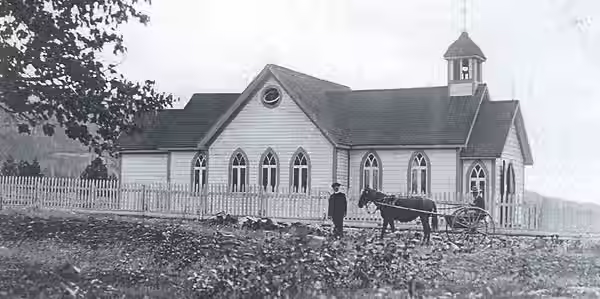Sun Yat-Sen and the S.S. Okanagan
- Jada Turchak
- Aug 7, 2024
- 3 min read
Updated: Jul 22, 2025

Of the most celebrated characters in Chinese history, Sun Yat-Sen, soon to be crowned "the father of Chinese democracy," travelled across Canada in the spring and summer of 1911.
At this time Sun Yat-Sen was a wanted man. He had been exiled to England in 1895 and, after a failed coup against the Qing dynasty, public ties to secret societies and a series of strange events, his status shifted from just another revolutionary to a common name in international politics.
The Chinese Freemasons, of which Sun was a core member, was a secret society for Chinese diaspora dedicated to preserving the culture of its oversees countrymen. A benevolent group, the Freemasons provided a social welfare system for Chinese labourers abroad, thus gaining dedicated followers across many Canadian Chinatowns. By 1904, Dr. Sun Yat-Sen had helped convert the Freemasons, also known as the Chi Kung Tong or Hong Min, into an openly anti-Qing revolutionary party. While conditions in China continued to escalate into the 1910s, Sun saw an opening for his next uprising, backed by the secret society.
Twice before he had visited Canada, however this 1911 trip would come to be momentous. From Montreal to Vancouver, Sun spoke about the turmoil in China to expatriates in Chinatowns, raising funds for revolution. To ensure his location stay disclosed from British and Chinese officials, Sun never publicized his visits beforehand, and would often travel with false papers, passing himself off as Japanese under the alias "Kikori Nakayama" or American under, his most well known name today, Sun Yat-Sen. Despite this however, members of the freemasons eagerly awaited his visits, informed through secret correspondence and word of mouth.
He entered Vancouver in February of 1911, before heading to Vancouver island. In Victoria alone, Sun had raised $12,000, about $400,000 today, ensuring the large crowd that China under his leadership would negotiate fairer laws for those living in Canada.

By Friday March 24 1911, Sun Yat-Sen was aboard the S.S
Okanagan making his way to Kelowna. That same
afternoon he landed at the wharf, greeted by members of the city's once thriving Chinatown. A small parade of traditional instruments led by Lum Lock, a well known member of Kelowna society, ushered the celebrity to his hotel.
Tired from his long journey, Sun Yat-Sen rested for the remainder of the day. In the morning, he toured Kelowna's small but lively Chinatown. There he would have stopped by the Dart Coon club, a subdivision of the Chinese freemasons, and the Kuomintang (Chinese nationalist party) Clubhouse, which was more so a place for social gatherings than political work. Following his tour of the town, Sun Yat-Sen gave a speech at the Kelowna opera house to a small crowd, who entertained Sun and gathered the donations that he had raised throughout his stay.


On March 28th, Sun was once again off via the S.S Okanagan, to continue his tour of British Columbia. By the end of his campaign, Sun Yat-Sen had crossed Canada, visiting many Chinese communities who, up until that point and unlikely again, would ever have the honor of hosting such an esteemed guest.
Sun returned to China in the fall of 1911, as conditions worsened and the Qing dynasty grew weaker. A spontaneous revolt in Wuchang, led to an outbreak of chaos from the south and up into the north. Soon the whole country would be engulfed in the Xinhai Revolution. Using the $35000, or $1.5 million, that he raised during his travels in Canada, Sun Yat-Sen was able to support troops with the materials necessary for the revolution, such as weapons and ammunition.
In this time, Sun Yat-Sen and other revolutionaries drafted a constitution and declared a provisional government, as the Qing planned abdication of the throne. After two thousand years of dynastic rule, China was declared a democratic republic with Sun Yat-Sen as its president.
These impacts were not felt by the homeland alone, for the republic greatly influenced local Chinese communities, who took to cutting their queued hair and adopting a western style of dress, something that until that time would result in immediate execution upon return to China. Thus, giving Chinese-Canadians, who for so long lived under the Qing's imposition, a better chance of integrating into western society, that did not simultaneously rebuke any chance of returning home.





Comments